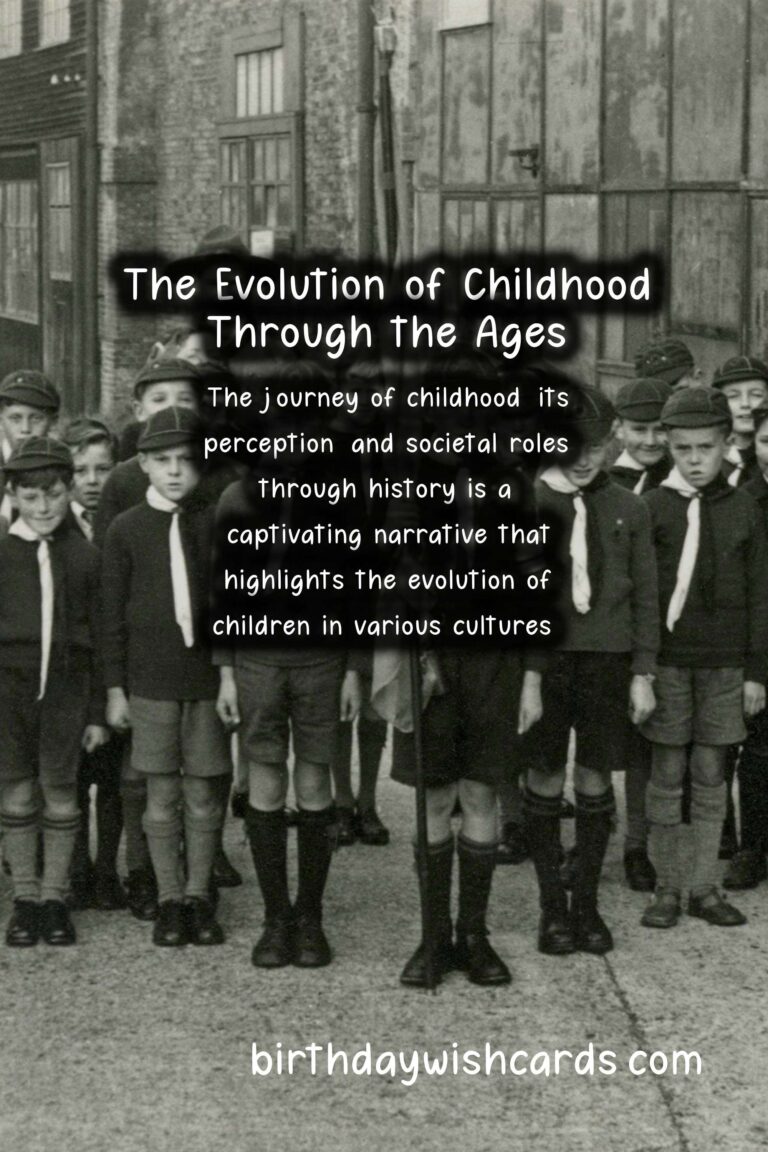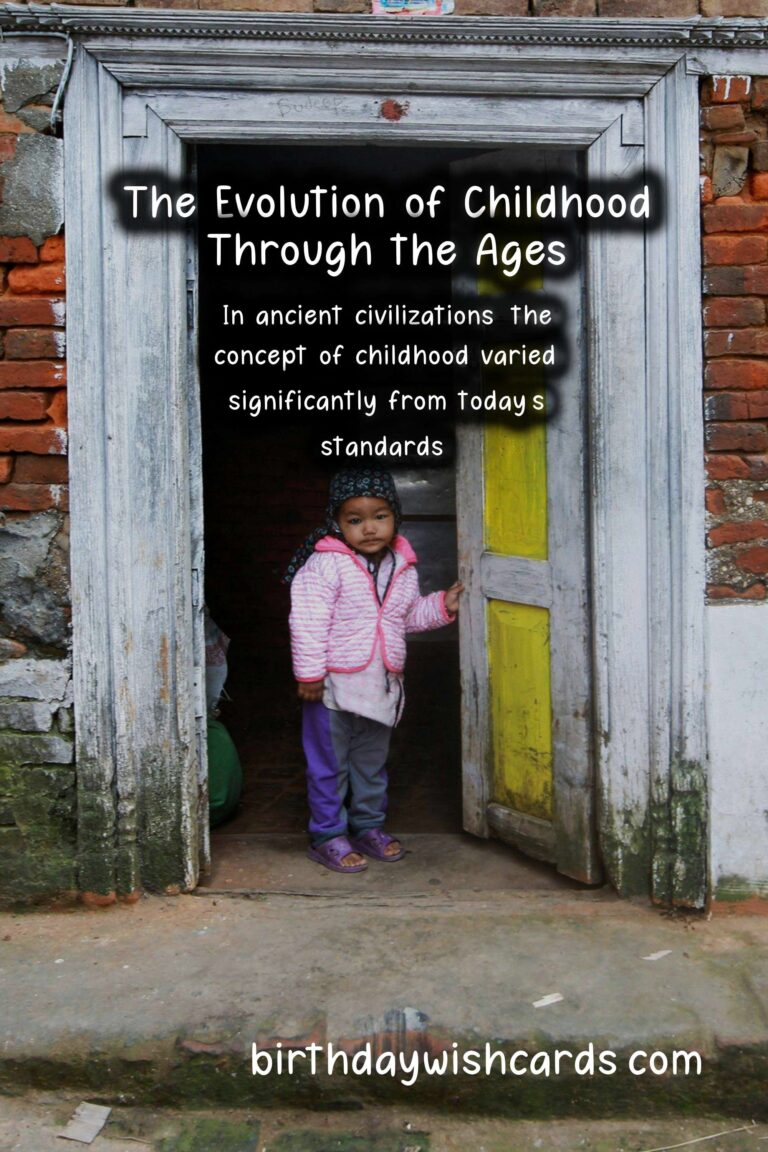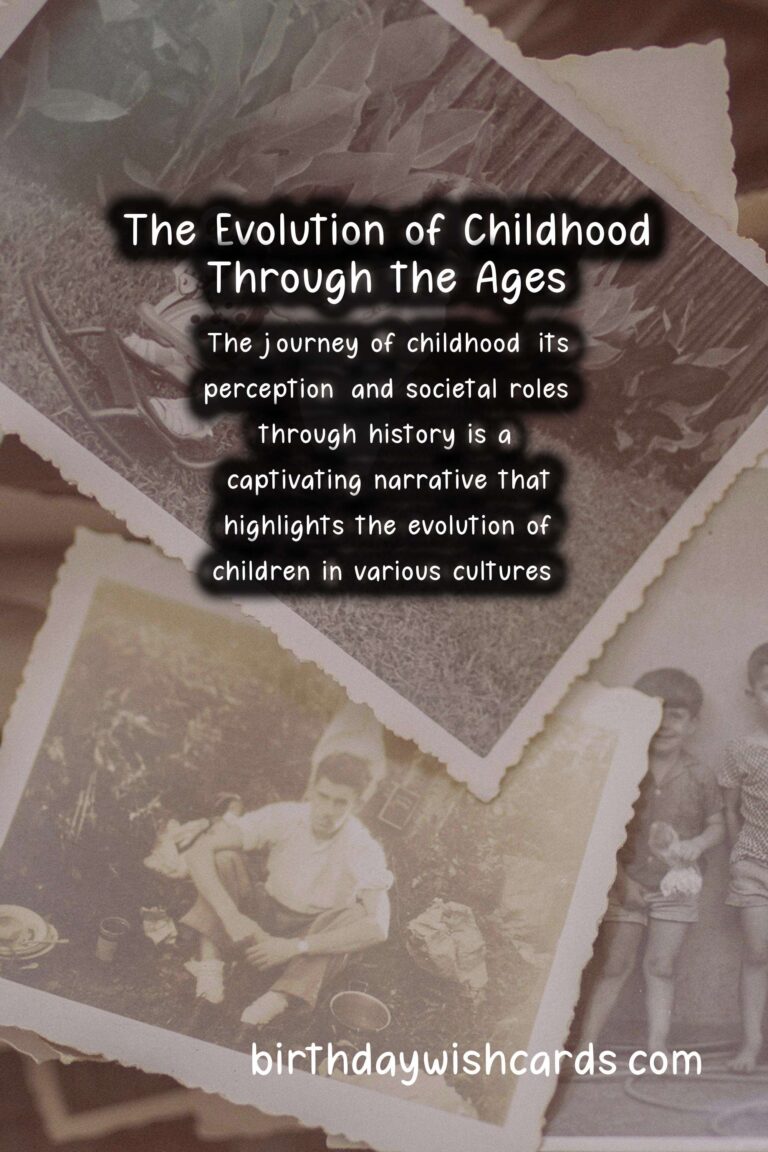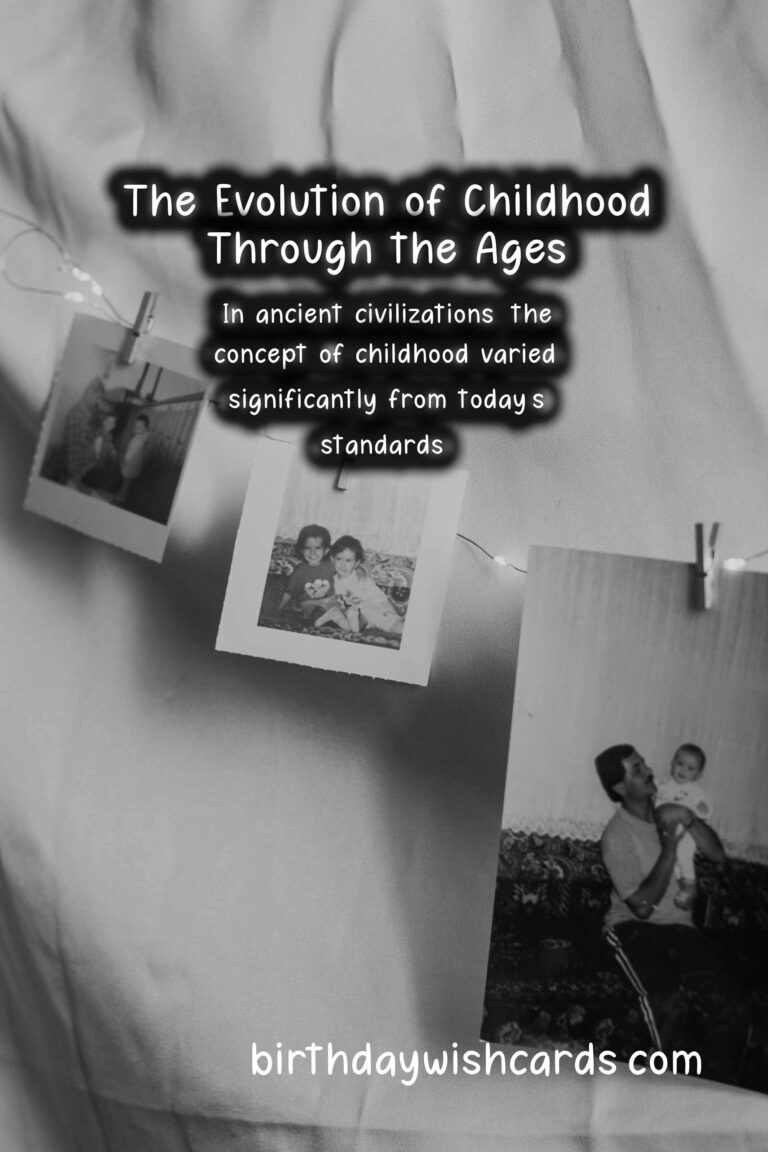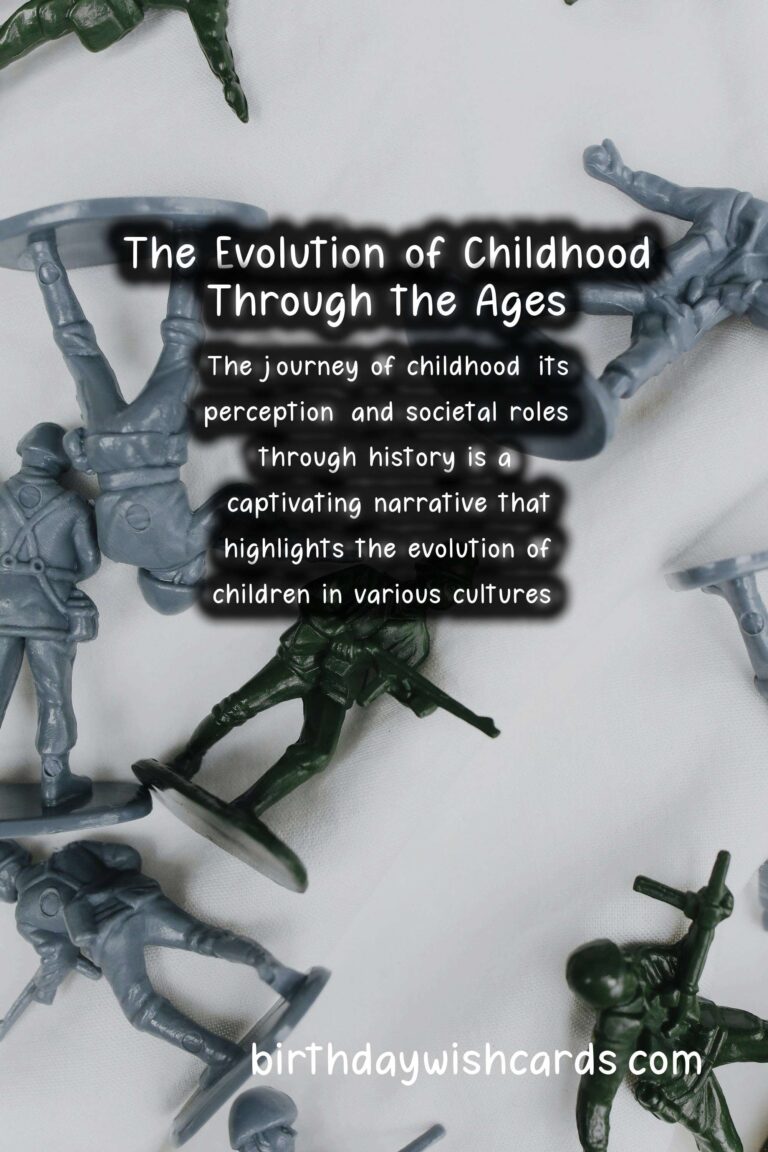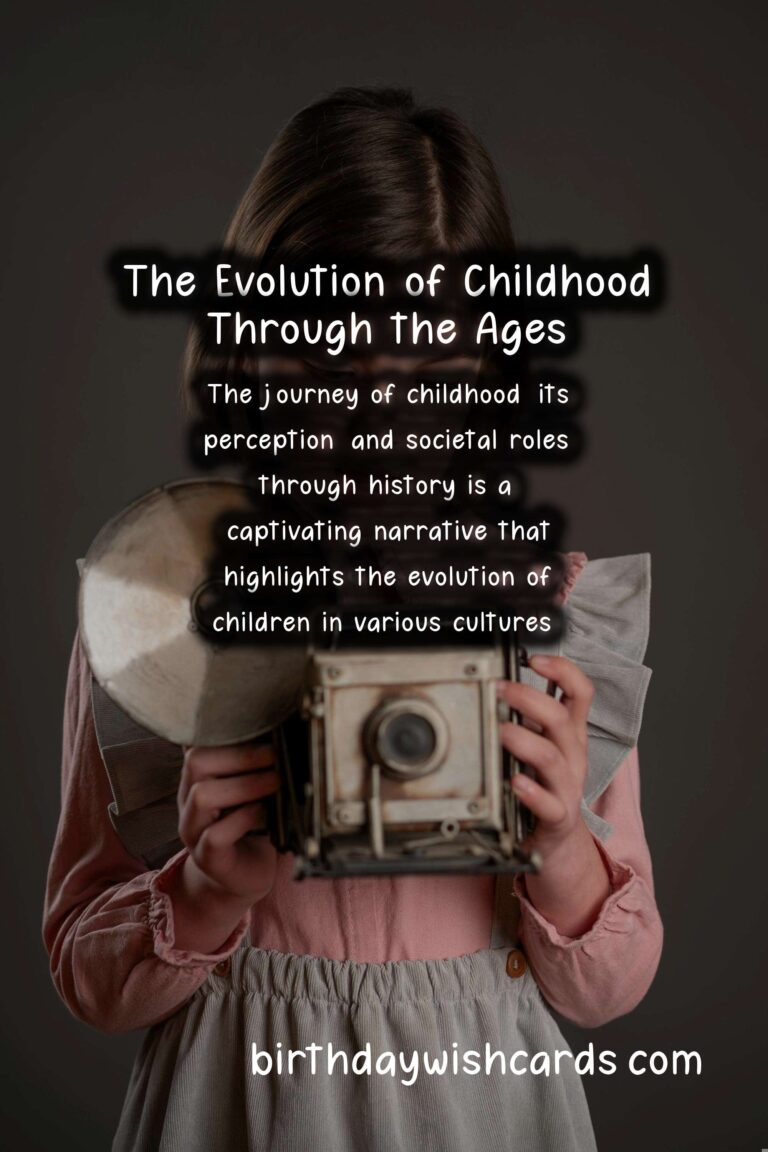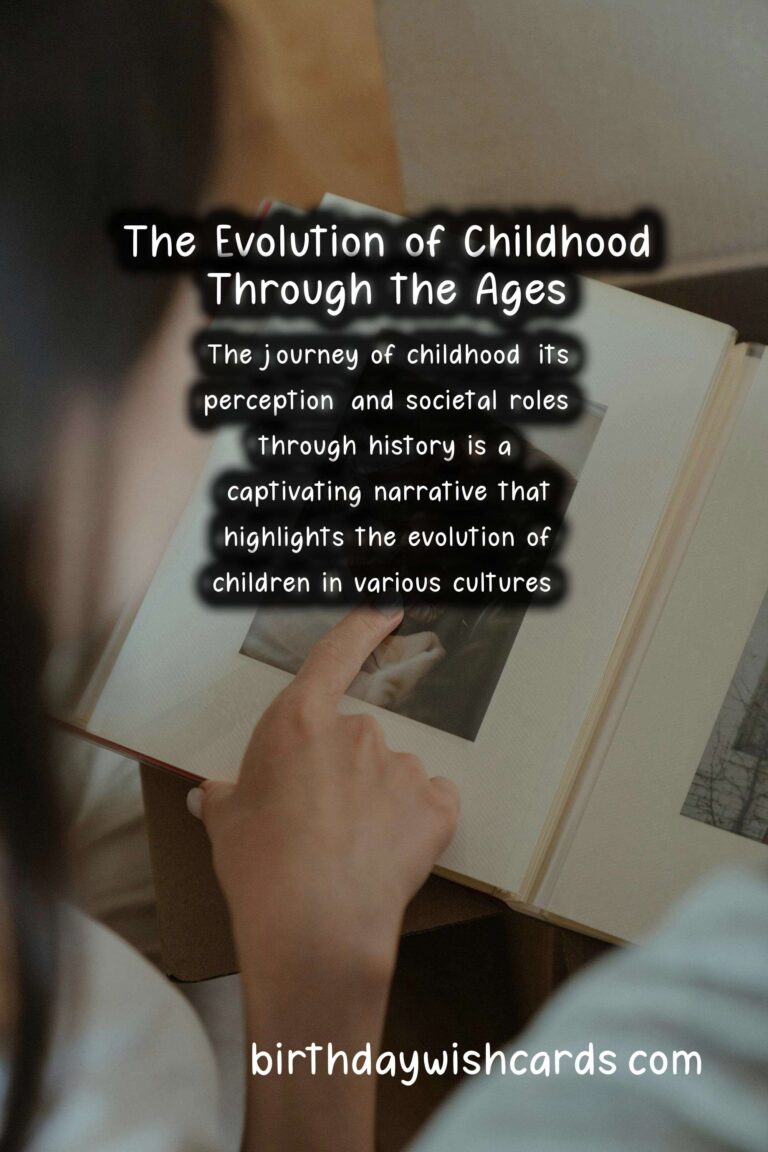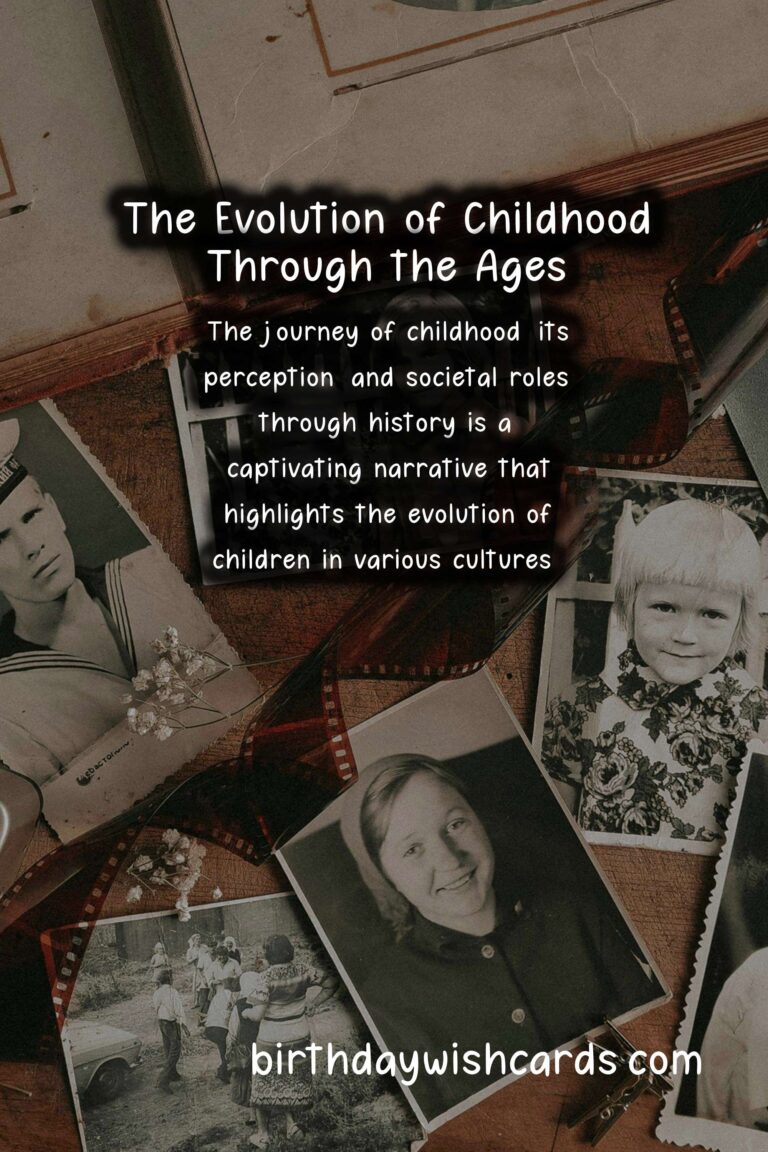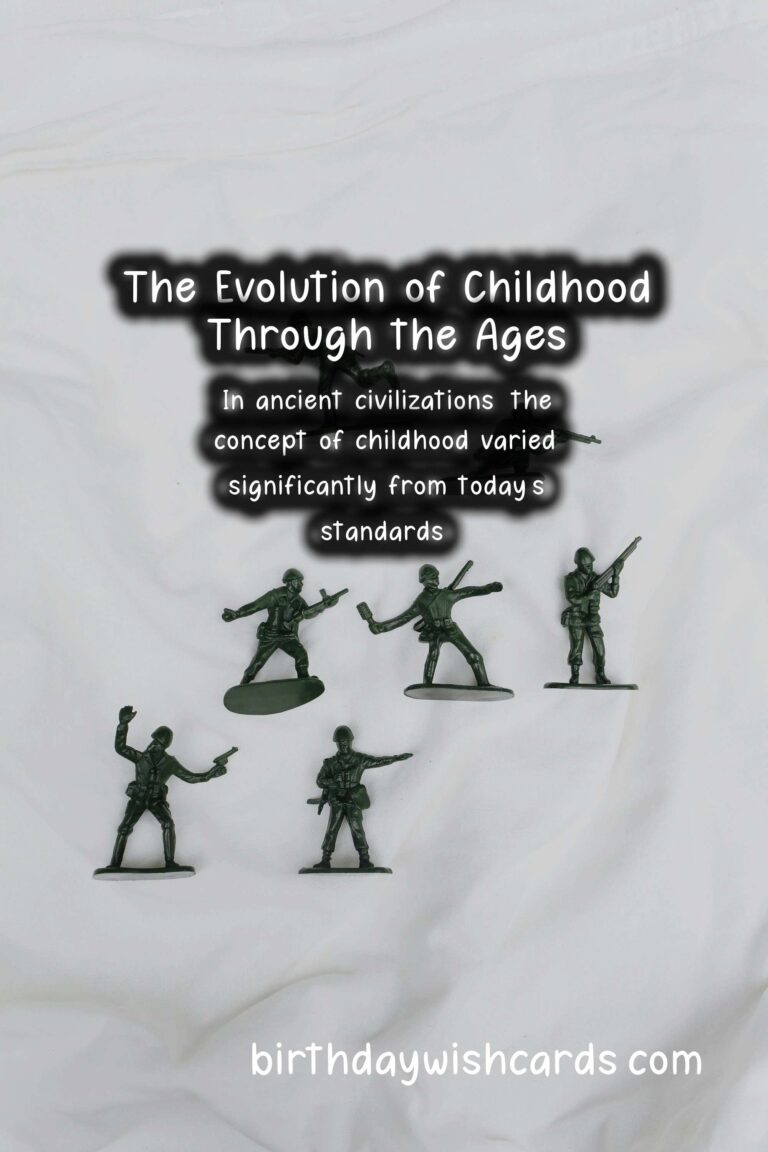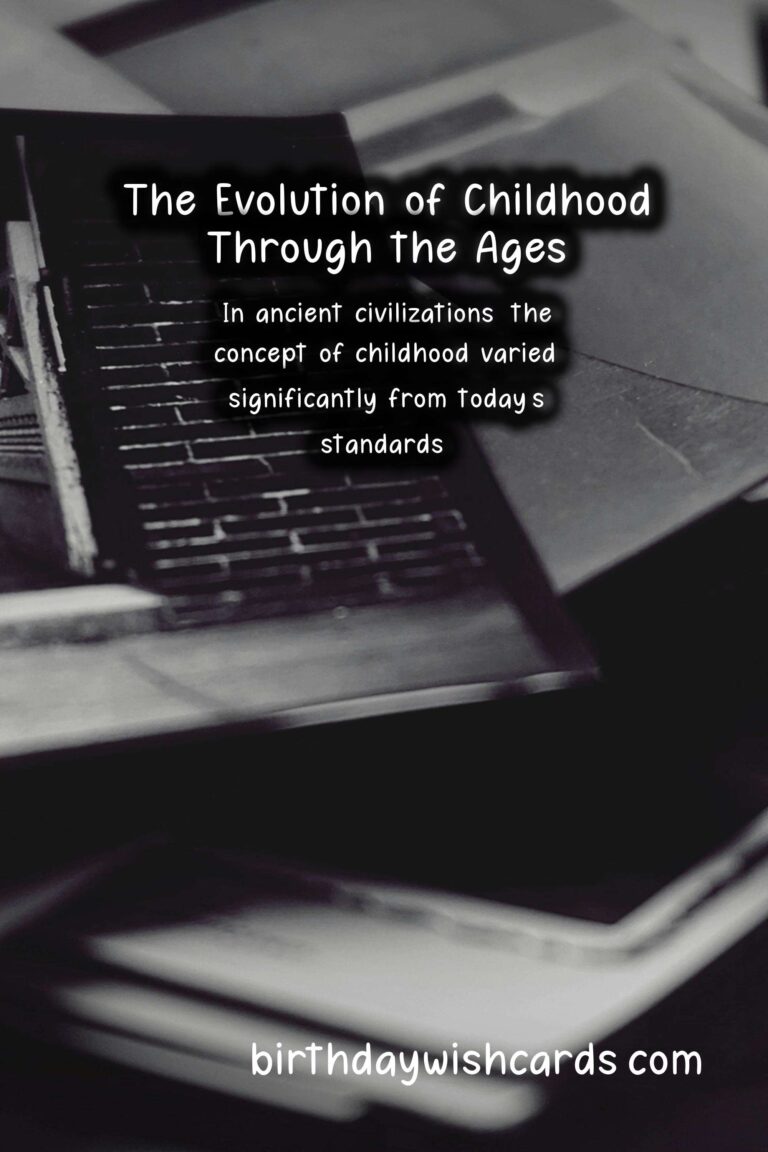
The journey of childhood, its perception, and societal roles through history is a captivating narrative that highlights the evolution of children in various cultures. This article takes a closer look at the historical context of childhood, examining how the understanding of kids has transformed from ancient times to the present day.
1. Ancient Civilizations and Childhood
In ancient civilizations, the concept of childhood varied significantly from today’s standards. For instance, in Ancient Egypt, children were seen as a blessing and an essential part of family life. Schools existed primarily for the elite, where boys received education while girls were prepared for domestic roles.
Similarly, in Ancient Greece, childhood was perceived differently based on gender and social class. Boys were trained physically and mentored in intellectual pursuits, while girls were often confined to domestic responsibilities. The philosopher Plato remarked on the importance of educating youth for the betterment of society.
2. The Middle Ages: Childhood as Preparation
Moving into the Middle Ages, the perception of children began to shift. During this time, childhood was often seen as a crucial preparation period for adulthood. Many children were involved in labor from a young age, contributing to family economies. The concept of a ‘childhood’ as a distinct phase was not fully recognized until later periods.
In medieval Europe, children were often dressed as mini-adults, reflecting the adult responsibilities they were expected to take on. Many lived in harsh conditions and faced dangers such as disease and famine, which limited their carefree experiences.
3. The Renaissance: A Change in Perspective
The Renaissance marked a significant change in the perception of children. With a renewed focus on humanism and individual potential, thinkers began to advocate for the emotional and intellectual development of children. The work of figures like John Locke introduced the idea of tabula rasa – that children are born without innate ideas and are shaped by experiences.
As literacy rates began to rise, so did the understanding of the importance of education, leading to the establishment of schools aimed at fostering the intellect and creativity of the young.
4. The Industrial Revolution: Childhood Lost?
The Industrial Revolution brought about tremendous changes in society, including increased urbanization and the transition to factory-based economies. Unfortunately, this era also led to widespread exploitation of child labor, with many children working long hours in dangerous conditions.
However, this struggle also sparked movements for reform. The 19th century eventually saw a growing awareness of the need for child welfare, leading to education reforms and the establishment of child labor laws.
5. The 20th Century: Recognizing Childhood
The 20th century saw dramatic changes in how society viewed children. The early part of the century emphasized the importance of psychological and emotional development in children, influenced by the works of psychologists like Sigmund Freud and Jean Piaget.
Post-World War II, families began to showcase a greater investment in children’s leisure and educational activities. The concept of childhood as a protected time for growth flourished, leading to initiatives aimed at children’s rights.
6. Modern Era: Children in a Changing World
In today’s globalized world, the understanding of childhood continues to evolve. Issues such as digital technology’s impact on parenting, education accessibility, and mental health awareness have become focal points in discussions surrounding modern children.
Organizations like UNICEF advocate for children’s rights globally, highlighting the importance of addressing inequalities that exist due to poverty, war, and other factors affecting children’s lives.
Conclusion: The Ongoing Journey
The history behind kids encapsulates a rich tapestry of cultural shifts, societal changes, and evolving perceptions. As we move forward, understanding this history is crucial in forming a better future for children everywhere, ensuring they have the rights, opportunities, and support they need to thrive.
As we reflect on the past, it becomes evident that the story of childhood is a vital link to our understanding of humanity and progress across generations.
The journey of childhood, its perception, and societal roles through history is a captivating narrative that highlights the evolution of children in various cultures. In ancient civilizations, the concept of childhood varied significantly from today’s standards. 
